November 29, 2023 •
Michigan Lobby Registration Act 2024 Reporting Thresholds Published
The Bureau of Elections posted the Lobby Registration Act 2024 Reporting Thresholds, which change every year in January to reflect the change in the consumer price index for Detroit. The registration thresholds for individual lobbyist compensation and for employer expenditures […]
The Bureau of Elections posted the Lobby Registration Act 2024 Reporting Thresholds, which change every year in January to reflect the change in the consumer price index for Detroit.
The registration thresholds for individual lobbyist compensation and for employer expenditures on a single official increased from $725 to $775.
Exempt expenditures increased from $15 to $16.
The registration threshold for an employer making lobbying expenditures increased from $2,900 to $3,075 for any 12-month period.
The financial transaction threshold between a registered employer or lobbyist and a public official increased from $1,450 to $1,550.
The reporting threshold for travel and lodging reimbursements increased from $950 to $1,000.
Monthly food and beverage expenditures allowance for a public official increased from $72 to $76, and the threshold for food and beverages purchased between January 1 and end the reporting period increased from $450 to $475.
Employee reimbursements increased from $29 to $31, and the general gift threshold also increased from $72 to $76.
Late filing fees increased from $29 a day up to a maximum of $870, to $31 a day up to a maximum of $930.
December 8, 2022 •
Are You Engaged in Grassroots Lobbying in New York? | Ask the Experts
Q: I heard New York City requires registration and reporting for grassroots lobbying? Who is required to register and how do I comply with all the reporting requirements? A: Yes, if an individual’s compensation or expenditures for grassroots lobbying exceeds […]
Q: I heard New York City requires registration and reporting for grassroots lobbying? Who is required to register and how do I comply with all the reporting requirements?
A: Yes, if an individual’s compensation or expenditures for grassroots lobbying exceeds $5,000 in the aggregate during a calendar year. Lobbying is considered any attempt to influence city officials, therefore all grassroots campaigns would be considered lobbying. The city law reflects the existing state law requiring registration and reporting for state lobbyists.
Once a grassroots campaign reaches the $5,000 lobbying threshold, bi-monthly periodic reports, an annual report, and fundraising and political consulting reports must be filed. Fundraising and political consulting reports are filed on the same bi-monthly schedule as the periodic reports.
For the bi-monthly periodic reports and the annual report, make sure you keep track of compensation, expenses, subjects lobbied, and names of the person and agencies lobbied. For the fundraising and political consulting reports, you will need to track compensation paid for fundraising and/or political consulting activities, a list of all persons or entities contracted for the purpose of providing fundraising and/or political consulting services, and the total dollar amount raised for each candidate for which such activities were performed.
Don’t forget when it comes to websites, a social media communication constitutes a grassroots lobbying communication when:
- References otherwise implicate an action covered by the term lobbying or lobbying activities;
- Takes a clear position on the action question; and
- Includes a call to action (i.e., solicits or exhorts the public, or a segment of the public, to contact a public official).
When grassroots lobbying through a social media communication is undertaken by an organization, through the organization’s social media account, this activity is reportable lobbying activity by the organization. When grassroots lobbying through a social media communication is undertaken by an individual, through their personal social media account, this activity is not reportable lobbying activity unless such individual is specifically retained by a client for such social media activity. Any expenses incurred to create, promote, place, or otherwise highlight an individual’s personal social media activity are reportable by the party incurring the expenses. A consultant’s activity on a grassroots campaign may be considered reportable lobbying if the consultant controlled the delivery and had input into the content of the message.
July 18, 2022 •
Commission To Move Forward With Changes to Lobbying Ordinance
The Tallahassee Commission on Ethics introduced an ordinance to change lobbying rules including a repeal of quarterly compensation reporting and a requirement for lobbyists to begin registering individually rather than by firm. The commission also adopted a 10-year ban on […]
The Tallahassee Commission on Ethics introduced an ordinance to change lobbying rules including a repeal of quarterly compensation reporting and a requirement for lobbyists to begin registering individually rather than by firm.
The commission also adopted a 10-year ban on lobbying for certain felons and a fee resolution raising the current registration fee from $25 to $500.
Ordinance 22-O-20 is scheduled for a second reading and public hearing on September 7.
If passed, the new rules will become effective January 1, 2023.
June 28, 2022 •
Santa Ana Makes First Pass on Lobbying Law
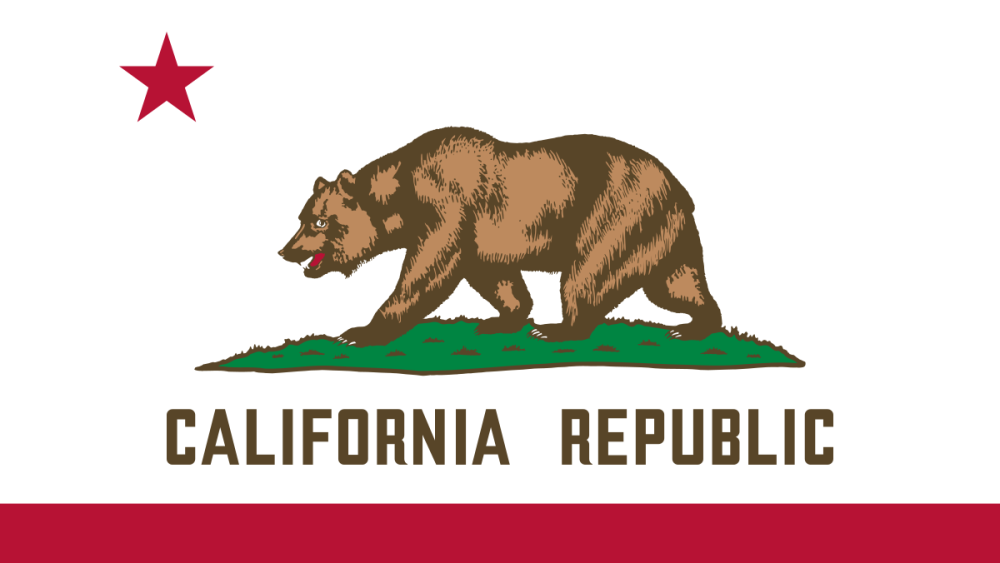
Flag of California
Santa Ana city council unanimously passed the first reading of a new lobbyist registration ordinance, outlining who must register, when reports are required, and the penalties for failing to follow the rules laid out in the ordinance. The ordinance defines […]
Santa Ana city council unanimously passed the first reading of a new lobbyist registration ordinance, outlining who must register, when reports are required, and the penalties for failing to follow the rules laid out in the ordinance.
The ordinance defines a lobbyist as any individual, business entity or organization, including a non-profit organization, that receives or becomes entitled to receive five hundred dollars or more in consideration in a month to lobby.
Once an individual becomes a lobbyist, they are required to register with the city clerk within 15 days.
If the ordinance follows the typical path to become law, the bill will need to be voted on two more times before it officially passes.

Utah Capitol Building - Jkinsocal
Utah lawmakers passed a lobbying transparency bill establishing requirements for foreign agents and amending the definition of lobbying. House Bill 90 defines the term foreign agent and requires a foreign agent to register with the lieutenant governor. Under the bill, […]
Utah lawmakers passed a lobbying transparency bill establishing requirements for foreign agents and amending the definition of lobbying.
House Bill 90 defines the term foreign agent and requires a foreign agent to register with the lieutenant governor.
Under the bill, a foreign agent must complete a foreign agent registration form, license application form, and wear an indicating name tag in at least 14-point type.
Additionally, the definition of lobbying includes influencing local action, such as an ordinance or purchasing decision, or education action, such as a nomination or appointment by an official or board.
The bill will become effective May 4.
June 10, 2021 •
Maine Gov. Signs Bill Increasing Registration Fees
On June 8, Gov. Janet Mills signed Legislative Document 670 to increase lobbyist registration fees and Legislative Document 1377 amending campaign finance definitions. Legislative Document 670 raises registration fees for lobbyists from $200 to $250 and lobbyist associates from $100 […]
On June 8, Gov. Janet Mills signed Legislative Document 670 to increase lobbyist registration fees and Legislative Document 1377 amending campaign finance definitions.
Legislative Document 670 raises registration fees for lobbyists from $200 to $250 and lobbyist associates from $100 to $125.
Additionally, Legislative Document 670 allows employers to apply for a fee waiver and the commission may waive the fees in whole or in part if the commission determines an economic hardship to the applicant.
The registration fee increases were proposed by the ethics commission to cover operation costs for the lobbyist regulatory program and to improve its e-filing and public access system.
Legislative Document 1377 amends the definition of independent expenditure and allows a person or committee to request a commission determination that an expenditure is not an independent expenditure within seven days of disseminating the communication.
The bills go into effect 90 days after the end of the Legislature’s first special session.
The California Fair Political Practices Commission (FPPC) has issued an advisory encouraging people subject to lobbying registration and reporting requirements to continue to make the best efforts to timely file all legally required reports and statements. However, it may be […]
The California Fair Political Practices Commission (FPPC) has issued an advisory encouraging people subject to lobbying registration and reporting requirements to continue to make the best efforts to timely file all legally required reports and statements.
However, it may be difficult for some to file statements and reports given the shelter-in-place order and other issues caused by the pandemic.
If circumstances caused by COVID-19 inhibit the filing of a lobbying report or statement, the filer should communicate these issues to the Office of the Secretary of State and document all attempts to file and the issues faced.
While quarterly lobbying reports are filed electronically, the law requires certain other statements be filed on paper with an original signature.
Restrictions imposed to fight the spread of COVID-19 may make the logistics of filing documents on paper with original signatures difficult or even impossible.
To the extent this is the case, people required to file lobbying forms on paper with original signatures are encouraged to make use of digital and electronic options for filing reports to ensure timely filing.
Paper statements with original signatures will need to be filed when feasible.
If a person with lobbying filing requirements makes best efforts to comply with the Political Reform Act’s lobbying registration and reporting rules but is unable to do so due to the COVID-19 pandemic, the FPPC will consider this a strong mitigating factor in determining whether an enforcement action against the person is appropriate.
April 9, 2020 •
Indiana Lobby Registration Commission Extends First Period Activity Report Filing Deadline
The Lobby Registration Commission is extending the first period activity report filing deadline from May 31 to July 15. First period activity reports cover the period from November 1, 2019, to April 30, 2020. Any late fees imposed for reports […]
The Lobby Registration Commission is extending the first period activity report filing deadline from May 31 to July 15.
First period activity reports cover the period from November 1, 2019, to April 30, 2020.
Any late fees imposed for reports filed June 1 to July 15 will be waived, but reports filed after July 15 will be subject to late fees.
The Lobby Registration Commission staff will continue to work from home in compliance with Executive Order 20-18, issued by Gov. Eric Holcomb to extend Indiana’s stay-at-home order until April 20.
July 24, 2019 •
Local Lawmakers in Colorado Consider Lobbying Ordinance
Local lawmakers are considering an ordinance requiring lobbyists working in Aurora to register and report expenditures in excess of $75. At-large councilwoman Angela Lawson, who is also the Lobbyist Registration Program Manager for the secretary of state, first introduced the […]
Local lawmakers are considering an ordinance requiring lobbyists working in Aurora to register and report expenditures in excess of $75.
At-large councilwoman Angela Lawson, who is also the Lobbyist Registration Program Manager for the secretary of state, first introduced the proposal to a city policy committee in October 2018.
If passed, lobbyists would be required to begin registering at the beginning of 2020.
City Council discussed the proposal during the council’s special study session on July 22.
The ordinance has not yet been brought forward for official action.
The date to move forward to a regular council meeting has not been set.
September 29, 2017 •
New Arkansas Lobbyist Registration and Reporting System
Beginning October 1, 2017, all lobbyists must register and file reports through the new lobbyist registration and reporting system. The new system requires all lobbyists, regardless of whether they are new lobbyists or currently registered, to re-register and submit a […]
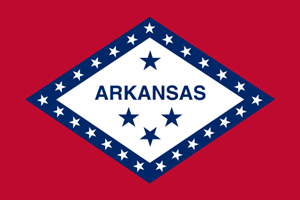 Beginning October 1, 2017, all lobbyists must register and file reports through the new lobbyist registration and reporting system.
Beginning October 1, 2017, all lobbyists must register and file reports through the new lobbyist registration and reporting system.
The new system requires all lobbyists, regardless of whether they are new lobbyists or currently registered, to re-register and submit a new signature card.
Lobbyists must re-register and submit a new signature card to file third quarter reports. The new system may be accessed at the Secretary of State’s website.
The Baltimore County Council passed an ethics bill requiring training for certain county government officials and registered lobbyists. The bill requires the Ethics Commission to provide a training course for registered lobbyists at least twice a year. A registered lobbyist […]
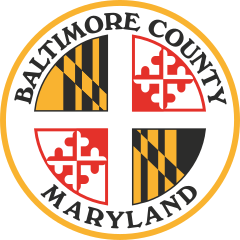 The Baltimore County Council passed an ethics bill requiring training for certain county government officials and registered lobbyists.
The Baltimore County Council passed an ethics bill requiring training for certain county government officials and registered lobbyists.
The bill requires the Ethics Commission to provide a training course for registered lobbyists at least twice a year. A registered lobbyist will be required to complete the initial training course within six months of registration, and once each year thereafter. The bill allows the training to be in-person or online.
According to the County Charter, the bill must be presented to County Exec. Kevin Kamenetz within two days and he has 10 days to approve or disapprove the legislation. If approved by Kamenetz, the bill will become effective on July 17, 2017.
Read the bill here.
March 23, 2017 •
Dallas City Council Approves Ethics Overhaul
On Wednesday, Dallas City Council voted unanimously to overhaul the city’s ethics laws after months of work to tighten rules on lobbying and reduce political influence in City Hall. Among other things, the new ethics rules bar successful campaign managers […]
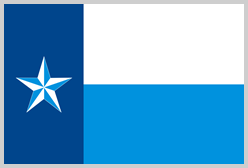 On Wednesday, Dallas City Council voted unanimously to overhaul the city’s ethics laws after months of work to tighten rules on lobbying and reduce political influence in City Hall.
On Wednesday, Dallas City Council voted unanimously to overhaul the city’s ethics laws after months of work to tighten rules on lobbying and reduce political influence in City Hall.
Among other things, the new ethics rules bar successful campaign managers from lobbying city officials for one year after a campaign, require association leaders as well as attorneys and law firms representing clients to register as lobbyists, lower the gift disclosure threshold from $500 to $250, and broaden the scope of those covered by the law to include city board and commission appointees.
The ordinance will take effect July 1, 2017.
October 23, 2015 •
New Jersey ELEC Proposes Changes to Lobbying Registration and Reporting Obligations
The New Jersey Election Law Enforcement Commission has approved the publication of a proposal amending lobbyist registration and reporting obligations. The proposal would require governmental affairs agents and represented entities to file all lobbying forms and reports electronically. A registration […]
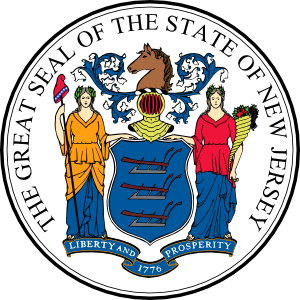 The New Jersey Election Law Enforcement Commission has approved the publication of a proposal amending lobbyist registration and reporting obligations. The proposal would require governmental affairs agents and represented entities to file all lobbying forms and reports electronically. A registration number and PIN supplied by the Commission would act as an electronic signature and acknowledgement for forms and reports submitted electronically.
The New Jersey Election Law Enforcement Commission has approved the publication of a proposal amending lobbyist registration and reporting obligations. The proposal would require governmental affairs agents and represented entities to file all lobbying forms and reports electronically. A registration number and PIN supplied by the Commission would act as an electronic signature and acknowledgement for forms and reports submitted electronically.
Furthermore, when a group of individuals, each registered as a governmental affairs agent, together represents more than one entity, the group will be able to file a notice of representation for a represented entity on behalf of the group. Notice of termination filed by such a group would need to indicate whether termination applies the entire group or to a specific governmental affairs agent.
Additionally, the proposal would require any changes to the notice of representation to be made by electronically filing an amendment. Lastly, the proposal would also require an individual registering as a governmental affairs agent for the first time to personally appear in Commission offices to submit the annual fee and required photographs.
The proposed amendments were published in the New Jersey Register on October 19, 2015, and will be the subject of a public hearing on December 15. If approved following the public hearing, the amendments are expected to go into effect in early February.
November 26, 2012 •
Mayor Emanuel Proposes Changes to Chicago’s Lobbyist Laws
Registration and reporting requirements will be affected
 Mayor Rahm Emanuel is continuing to overhaul the city’s ethics code by introducing another ordinance based on his ethics task force’s recommendations. While this proposed ordinance deals mostly with governmental employees and elected officials, it would also bring some changes to lobbyist registration and reporting.
Mayor Rahm Emanuel is continuing to overhaul the city’s ethics code by introducing another ordinance based on his ethics task force’s recommendations. While this proposed ordinance deals mostly with governmental employees and elected officials, it would also bring some changes to lobbyist registration and reporting.
The ordinance, if approved, will change the definition of a lobbyist. Currently, volunteers, employees, officers, and directors of a not-for-profit entity are exempted from registering as a lobbyist. However, the proposed ordinance will eliminate that exemption and require those members of a not-for-profit entity who seek to influence legislative or administrative action to register as a lobbyist. The proposal does allow the ethics board to create objective criteria allowing for a reduction or a waiver of the registration fees for not-for-profits lobbyists.
Finally, under the proposal, lobbyists would be required to disclose the actual amount of compensation received from employers. Currently, the compensation needs only to be rounded to the nearest $1,000.
Photo of the Daley Plaza and Chicago City Hall by JeremyA on Wikipedia.
State and Federal Communications, Inc. provides research and consulting services for government relations professionals on lobbying laws, procurement lobbying laws, political contribution laws in the United States and Canada. Learn more by visiting stateandfed.com.


